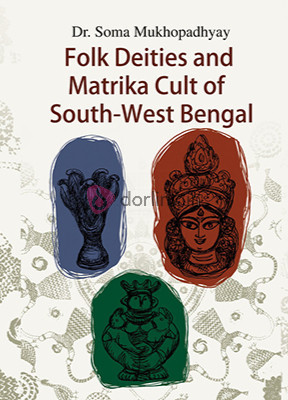Writer : Soma Mukhopadhyay
- Shipping Time : 10 Days
- Policy : Return/Cancellation?
You can return physically damaged products or wrong items delivered within 24 hours with photo/video proof.
Contact Customer Support for return initiation and receive return authorization via email. Securely package for return.
Refunds for eligible returns are processed within 7-10 business days via Bank Transfer.
Order cancellation allowed within 24 hours of placing it. Standard policy not applicable for undamaged/wrong product cases. Detailed info. - Genre : Essays>Cultural/Folk/Ethnographic Criticism
- Publication Year : NA
- ISBN No : 978-81-956794-9-2
- Binding : Card Board (Hard) with Gel Jacket
- Pages : NA
- Weight : 499 gms
- Height x Width x Depth : 8.5x5.5x0.5 Inch
If so, it will be notified
About the Book
Folk Deities and Matrika Cult of South-West Bengal
Dr. Soma Mukhopadhyay’s Folk Deities and Matrika Cult of South-West Bengal is a comprehensive exploration of the vibrant spiritual landscape of South West Bengal, building upon her Ph.D. dissertation. This revised edition delves deeply into the worship of folk deities, focusing particularly on the diverse manifestations of the Mother Goddess in the districts of Bankura, Purulia, and West Midnapore. The author’s rigorous and extensive fieldwork breathes life into her analysis, offering readers a rich, ground-level understanding of these age-old traditions. Through detailed accounts, Mukhopadhyay uncovers the regional variations in the worship practices and the profound significance of the Matrika (Mother Goddess) cult within the local cultural fabric.
What sets this book apart is not just the detailed ethnographic research, but also the way it critiques and engages with existing scholarly literature. Mukhopadhyay examines how these folk traditions intersect with academic interpretations, opening up a broader conversation about the relationship between lived practices and their scholarly representations. The book invites readers to explore not just the rituals, but the deeper cultural, social, and historical context in which these deities exist. A fascinating read for anyone interested in folklore, religion, and cultural studies, it offers new insights into the intersection of tradition and modern academic inquiry, making it an essential work for both scholars and enthusiasts of South Asian studies.

